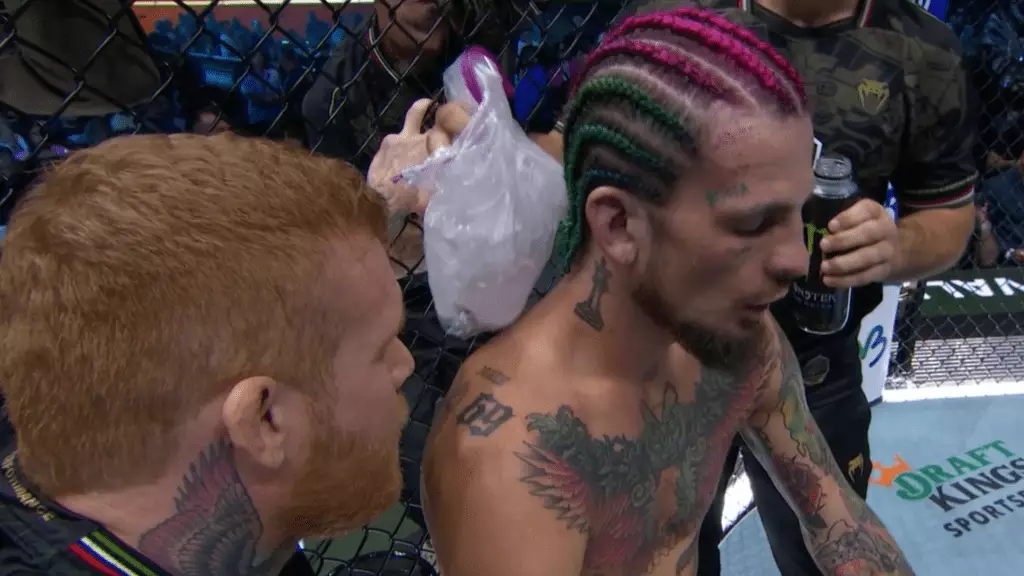UFC fights often serve as a vivid representation of not just the fighters’ skill but also the effectiveness of their teams. The recent showdown at UFC 306, where Sean O’Malley suffered a decisive defeat to Merab Dvalishvili, has ignited substantial conversation around the corner strategy employed by O’Malley’s team. With the fight culminating in a unanimous decision loss for O’Malley, critical eyes have turned to his corner, particularly coach Tim Welch, with renowned fighter and coach Matt Serra offering pointed criticisms of their approach.
In combat sports, the role of a corner is transformative; it can mean the difference between victory and a devastating loss. As gleaned from the fight’s progression, O’Malley was clearly at a disadvantage, having found himself down on points by the fifth round. While Dvalishvili’s performance was aggressive and adept, O’Malley’s corner seemed to lack a sense of urgency that one might expect in such dire circumstances. Serra’s critical remarks highlight a fundamental issue: Welch’s failure to adjust his motivational tactics to the reality of the situation. Many coaches must pivot to a more urgent and frank approach when their fighter is clearly losing ground, yet O’Malley’s camp seemed to skirt that necessity.
Strikingly, Serra pointed out that a coach often shines when their fighter is performing well, but true coaching mettle is revealed when adversity strikes. Welch’s reluctance to confront O’Malley with a harsh yet necessary evaluation may have stemmed from a desire to protect the fighter’s psyche. However, in the high-pressure environment of the UFC, it can be argued that honesty and clarity are paramount for adjustments to be made inside the octagon.
O’Malley’s subsequent revelation concerning a torn labrum adds complexity to the analysis of the fight. This injury could have significantly impacted his performance and weighed on his ability to execute the game plan devised with his corner. The implications here are profound; if a fighter is physically compromised, the corner must adapt their strategy accordingly. Welch could have benefited from a more aggressive dialogue, motivating O’Malley to dig deep and intensify his efforts, despite the pain.
In combat sports contexts, a fighter’s physical condition can shape the strategies employed by both the fighter and their coaching team. Knowing that O’Malley was grappling with a debilitating injury heading into UFC 306, Welch’s failure to recalibrate his coaching approach might have ultimately hindered O’Malley’s performance.
The criticisms levied by Serra serve not only to reflect on O’Malley’s performance but also to illuminate the crucial role that coaching plays in high-stakes fights. Adjusting corner strategies with an eye towards motivation and realism, particularly during adversities, is essential in helping fighters navigate difficult bouts. For future encounters, both fighters and their teams could benefit from adopting more responsive coaching styles, ensuring that athletes are not only prepared physically but also mentally equipped to face substantial challenges within the octagon. Understanding the delicate balance between motivation and honesty could very well increase their chances of success in competitive environments.

